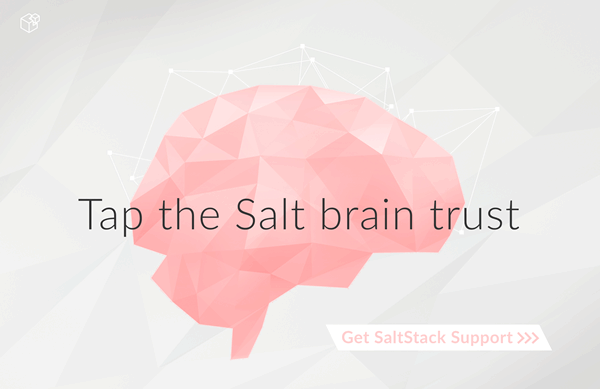RHEL / CentOS / Scientific Linux / Amazon Linux / Oracle Linux¶
Installation from Repository¶
RHEL/CentOS 5¶
Due to the removal of some of Salt's dependencies from EPEL5, we have created a repository on Fedora COPR. Moving forward, this will be the official means of installing Salt on RHEL5-based systems. Information on how to enable this repository can be found here.
RHEL/CentOS 6 and 7, Scientific Linux, etc.¶
Beginning with version 0.9.4, Salt has been available in EPEL. It is installable using yum. Salt should work properly with all mainstream derivatives of RHEL, including CentOS, Scientific Linux, Oracle Linux and Amazon Linux. Report any bugs or issues on the issue tracker.
On RHEL6, the proper Jinja package 'python-jinja2' was moved from EPEL to the "RHEL Server Optional Channel". Verify this repository is enabled before installing salt on RHEL6.
Enabling EPEL¶
If the EPEL repository is not installed on your system, you can download the RPM from here for RHEL/CentOS 6 (or here for RHEL/CentOS 7) and install it using the following command:
rpm -Uvh epel-release-X-Y.rpm
Replace epel-release-X-Y.rpm with the appropriate filename.
Installing Stable Release¶
Salt is packaged separately for the minion and the master. It is necessary only to install the appropriate package for the role the machine will play. Typically, there will be one master and multiple minions.
On the salt-master, run this:
yum install salt-master
On each salt-minion, run this:
yum install salt-minion
Installing from epel-testing¶
When a new Salt release is packaged, it is first admitted into the
epel-testing repository, before being moved to the stable repo.
To install from epel-testing, use the enablerepo argument for yum:
yum --enablerepo=epel-testing install salt-minion
Installation Using pip¶
Since Salt is on PyPI, it can be installed using pip, though most users prefer to install using RPMs (which can be installed from EPEL).
Installing from pip has a few additional requirements:
- Install the group 'Development Tools',
yum groupinstall 'Development Tools' - Install the 'zeromq-devel' package if it fails on linking against that afterwards as well.
A pip install does not make the init scripts or the /etc/salt directory, and you will need to provide your own systemd service unit.
Installation from pip:
pip install salt
Warning
If installing from pip (or from source using setup.py install), be
advised that the yum-utils package is needed for Salt to manage
packages. Also, if the Python dependencies are not already installed, then
you will need additional libraries/tools installed to build some of them.
More information on this can be found here.
ZeroMQ 4¶
We recommend using ZeroMQ 4 where available. SaltStack provides ZeroMQ 4.0.4 and pyzmq 14.3.1 in a COPR repository. Instructions for adding this repository (as well as for upgrading ZeroMQ and pyzmq on existing minions) can be found here.
If this repo is added before Salt is installed, then installing either
salt-master or salt-minion will automatically pull in ZeroMQ 4.0.4, and
additional states to upgrade ZeroMQ and pyzmq are unnecessary.
Warning
RHEL/CentOS 5 Users
Using COPR repos on RHEL/CentOS 5 requires that the python-hashlib
package be installed. Not having it present will result in checksum errors
because YUM will not be able to process the SHA256 checksums used by COPR.
Note
For RHEL/CentOS 5 installations, if using the new repository to install Salt (as detailed above), then it is not necessary to enable the zeromq4 COPR, as the new EL5 repository includes ZeroMQ 4.
Package Management¶
Salt's interface to yum makes heavy use of the
repoquery utility, from the yum-utils package. This package will be
installed as a dependency if salt is installed via EPEL. However, if salt has
been installed using pip, or a host is being managed using salt-ssh, then as of
version 2014.7.0 yum-utils will be installed automatically to satisfy this
dependency.
Post-installation tasks¶
Master
To have the Master start automatically at boot time:
chkconfig salt-master on
To start the Master:
service salt-master start
Minion
To have the Minion start automatically at boot time:
chkconfig salt-minion on
To start the Minion:
service salt-minion start
Now go to the Configuring Salt page.


